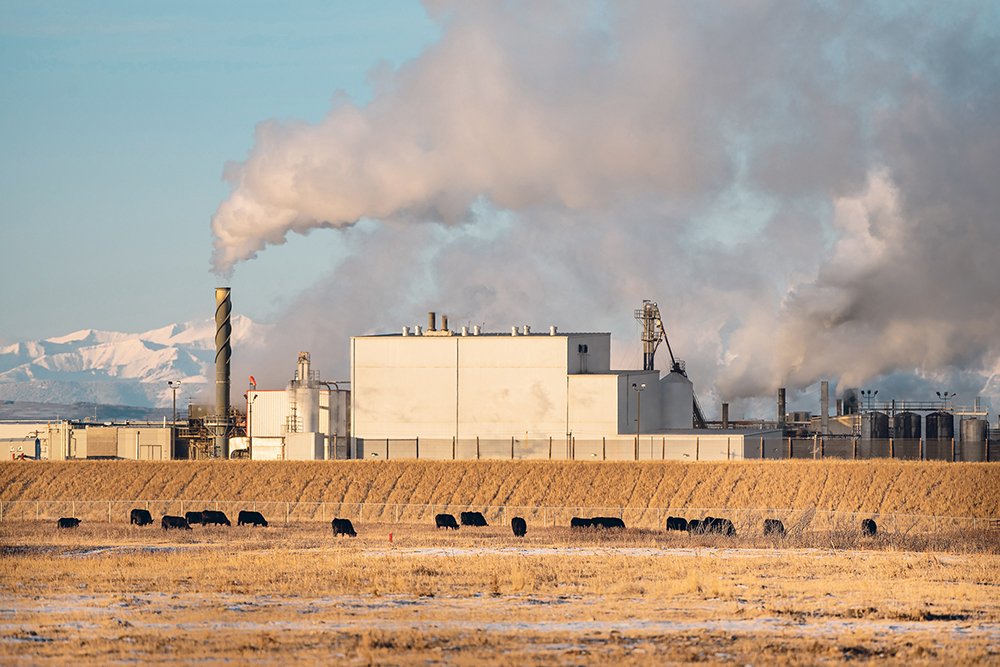Cargill labour disruption avoided | The Western Producer

Canada’s beef industry has avoided a significant labour disruption, as workers at Cargill’s High River, Alta., packing facility have voted to accept a new contract.
Although the threat of a strike or lockout affecting much of Canada’s beef sector has been averted, the union representing workers at the Cargill plant says its fight to change the meatpacking industry isn’t over.
Employees have voted 71 percent in favour of a new contract, United Food and Commercial Workers Canada Union Local 401 said in a statement Dec. 4.
If they had rejected the deal, more than 2,000 workers at the plant potentially would have either gone on strike Dec. 6, or the company could have locked them out.
The union also represents 2,500 workers at JBS Foods’ plant in Brooks, Alta., which expects to begin bargaining on a new contract for those workers in the New Year.
It has been estimated about 70 percent of the beef sold in Canada comes from the two Alberta plants.
The union is asking Albertans to join “with us in calling for reforms and restructuring in the meatpacking industry.”
The union has stated that Cargill has boasted of high profits while beef prices have skyrocketed and and labour costs have been unchanged.
Cargill said in a statement Nov. 22 that beef prices are ultimately the result of supply and demand.
“In part due to a shortage of labour, the industry is not currently able to process as many cattle as ranchers are able to produce. This, when combined with other backups of cattle due to COVID/weather events, plus an increase in demand for beef, accounts for the disconnect between live cattle prices and wholesale beef prices.”
Hundreds of workers at the High River plant were infected and two died following a COVID-19 outbreak last year that was the largest in North America, forcing the facility to be closed for two weeks.
An executive summary of a report by researchers at the Centre for Refugee Studies at York University and the Calgary-based community advocacy group ActionDignity said 67 percent of workers in Alberta’s meat processing industry are immigrants who “bore the brunt of the outbreaks, infection and fatalities” during the pandemic.
However, Cargill’s employees in High River are important to the company’s “work to nourish the world in a safe, responsible and sustainable way,” Jarrod Gillig, business operations and supply chain president for Cargill’s North American protein business, said in a statement Dec. 4.
“We are pleased to have reached an agreement that is comprehensive, fair, and reflective of their commitment to excellence at Cargill and the critical role they play in feeding families across Canada.”
The union said Dec. 4 the contract is “the best of its kind and presented unprecedented gains in this time of economic and political uncertainty and during the biggest health crisis the world has ever seen.”
It includes a 21 percent wage increase over the life of the contract — along with $4,200 in retroactive pay for many Cargill union members, the union said Dec. 1. The deal also includes a $1,000 signing bonus, $1,000 COVID-19 bonus, and more than $6,000 total bonuses for many members three weeks before Christmas.
It also offers improved health benefits, including psychology and massage therapy, for Cargill workers and their families, along with significant contract provisions “to facilitate a new culture of health, safety, dignity, and respect in the workplace.”
The agreement was tentatively approved by the union’s bargaining committee on Nov. 30. Workers approved it during voting Dec. 2 to 4.
“A victory has been won and this is a day to celebrate,” said the union.
“The injustices at Cargill, however, are not made right by the contract. Local 401 and its activists look to the future to enforce the new rights of Cargill workers in this unprecedented collective agreement.”
Source: www.producer.com

